Are you planning a trip to the United States? Do you know all the necessary travel documents you need to have in order? From visa applications to passport renewals, navigating the world of US travel docs can be overwhelming. But fear not! We have got you covered with this comprehensive guide that provides all the essential information and expert tips that you need to ensure a smooth journey through the US visa process and requirements.
Key Takeaways:
- Understanding the different types of US travel documents and their purpose
- Qualifications and requirements for US visa applications
- Step-by-step guide on how to apply for US travel docs
- The supporting documents needed for your US travel application
- Important information about passport transfer and expiration
Overview of US Travel Docs
When planning a trip to the United States, it is important to familiarize yourself with the travel documents required for entry. The B-1/B-2 visitor visa is a common type of travel document for individuals temporarily visiting the US for business, pleasure, or medical treatment.
The B-1 visa is specifically for individuals traveling to the US for business-related activities, such as attending conferences, negotiating contracts, or engaging in consultations with business partners. On the other hand, the B-2 visa is issued for recreational travel, tourism, visiting friends and family, or obtaining medical treatment in the US.
In many cases, the B-1 and B-2 visas are combined and issued as the B-1/B-2 visa, allowing travelers to engage in a wide range of activities during their visit to the US.
To ensure a smooth and hassle-free trip, it is crucial to understand the specific requirements and application processes for US Travel Docs. By familiarizing yourself with the necessary travel documents, you can avoid unnecessary delays and complications during your trip.
Let’s take a closer look at the requirements and procedures for obtaining US Travel Docs in the following sections:
- Qualifications for US Travel Docs
- Application Items for US Travel Docs
- How to Apply for US Travel Docs
- Supporting Documents for US Travel Docs
- Supporting Documents for Medical Care
- Electronic Visa Update System (EVUS)
- Form DS-160 for US Travel Docs
- Passport Transfer and Expiration for US Travel Docs
- Applying for a US Visa Abroad
- Visa Application Requirements for Convicted Individuals
- Visa Interview Requirements for US Travel Docs
Qualifications for US Travel Docs
In order to qualify for a B-1/B-2 visa, applicants must meet certain requirements to ensure their trip to the United States is legitimate. These qualifications establish that the visit is temporary, with a specific duration of stay, and the applicant possesses the financial means to cover their expenses. Additionally, applicants must have a residence outside the United States and demonstrate ties to their home country.
When applying for a B-1/B-2 visa, it is crucial to provide evidence that supports these qualifications. This includes demonstrating the purpose of your visit and the intention to return to your home country after the trip. By doing so, you enhance your chances of obtaining the necessary travel documents to enter the United States.
Qualification Requirements for a B-1/B-2 Visa
- Temporary Visit: You must establish that your trip to the United States will be temporary, such as for business or tourism purposes.
- Specific Duration of Stay: It is essential to specify the intended duration of your visit and provide supporting documentation, such as flight itineraries or hotel reservations.
- Financial Means: You must demonstrate that you have sufficient funds to cover your expenses during your stay in the United States, including accommodation, transportation, and daily living expenses.
- Residence Outside the United States: It is necessary to have a residence outside the United States, indicating strong ties to your home country and a commitment to returning after your trip.
- Ties to Home Country: You may be asked to provide evidence of ties to your home country, such as family, employment, or property ownership. This helps establish your intent to return after your temporary visit.
Meeting these qualifications is crucial for a successful B-1/B-2 visa application. By ensuring that you have all the necessary supporting documents and thoroughly demonstrating your eligibility, you increase the likelihood of a positive outcome.
“The qualifications for a B-1/B-2 visa are designed to ensure that applicants plan temporary visits, have the means to support themselves, and have strong ties to their home country.”
Remember, each visa application is unique, and additional requirements may apply depending on your specific circumstances. It is recommended to consult the official US Travel Docs website for the most up-to-date information and guidance.
Application Items for US Travel Docs
To successfully apply for a B-1/B-2 visa and ensure a smooth process, it is essential to gather and prepare the following application items:
- Nonimmigrant Visa Electronic Application (DS-160) form: Fill out and submit the DS-160 form online. This form collects important personal information and details regarding your purpose of travel. Remember to keep the confirmation page as you will need to bring it to your visa interview.
- Valid passport: Ensure your passport is valid for at least six months beyond your intended period of stay in the United States. If your passport is expiring soon, it is advisable to renew it before applying for a visa.
- Recent photograph: Provide a recent, color photograph that meets the specifications mentioned on the U.S. embassy or consulate’s website. The photograph should be taken against a plain, white background and must be in the specified dimensions.
- Visa application fee receipt: Pay the visa application fee and obtain a receipt as proof of payment. The fee amount may vary depending on your country of residence. Check the U.S. embassy or consulate’s website for the exact fee and payment instructions.
- Interview appointment letter: Schedule an appointment for your visa interview and bring the appointment letter with you on the scheduled date. The appointment letter will provide you with important instructions and information regarding your interview.
- Supporting documents: Prepare any supporting documents that demonstrate the purpose of your trip. These documents may include but are not limited to:
- Bank statements or financial records to prove your ability to cover your expenses during your stay
- Documents related to your planned itinerary, including flight reservations and hotel bookings
- Letter of invitation from a business contact or relatives residing in the United States, if applicable
- Evidence of ties to your home country, such as property ownership, employment, or family obligations
Remember that thorough preparation and organization are key to a successful visa application. Ensure all required documents are complete, valid, and arranged in a logical order before attending your visa interview.
By gathering the necessary application items and presenting them confidently during your interview, you can increase your chances of obtaining a B-1/B-2 visa for your travel to the United States.
How to Apply for US Travel Docs
Applying for US travel docs requires several steps to ensure a smooth and successful process. Here’s a simplified guide on how to apply:
- Complete the DS-160 Form: Start the application process by filling out the DS-160 form online. This form collects personal, educational, and professional information that is essential for determining your eligibility for a US visa.
- Pay the Visa Application Fee: After submitting the DS-160 form, you will need to pay the visa application fee. The fee is non-refundable and can be paid online through various payment methods.
- Schedule an Appointment: Once the fee is paid, schedule an appointment at the nearest US embassy or consulate. The availability of appointment dates may vary, so it’s advisable to plan ahead.
- Attend the Visa Interview: On the day of your appointment, arrive at the embassy or consulate on time and be prepared for the visa interview. The interview is an opportunity for the consular officer to ask questions about your trip, so be ready to provide honest and concise answers.
During the application process, it is important to bring all the required documents and be well-prepared. These may include:
- Valid passport
- DS-160 confirmation page
- Appointment confirmation letter
- Recent photograph
- Supporting documents, such as proof of financial stability, travel itinerary, or letter of invitation (if applicable)
Remember to check the specific requirements and documents needed for your visa category and purpose of travel. Being organized and providing accurate information will increase your chances of a successful visa application.
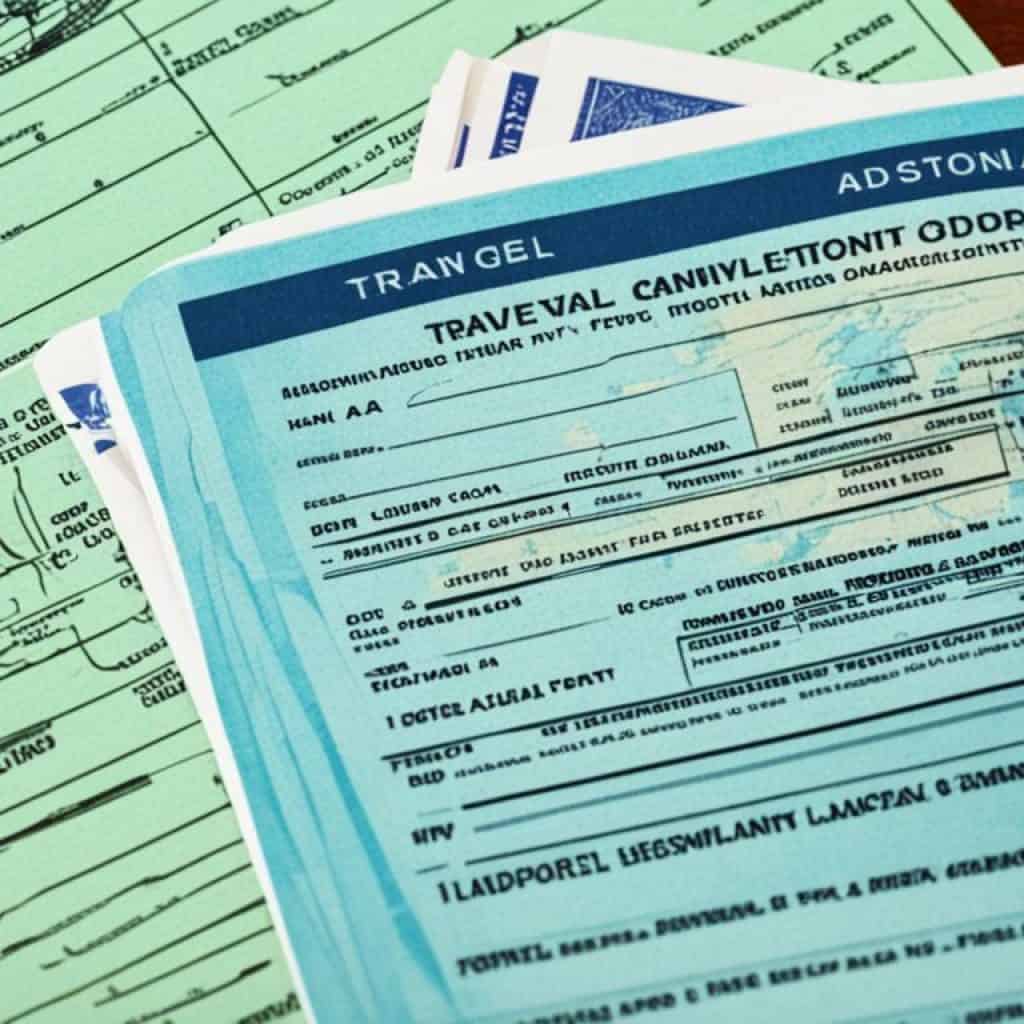
âThe application process for US travel docs may seem overwhelming, but with careful preparation and attention to detail, you can navigate through it smoothly. Stay organized, gather all the necessary documents, and approach your visa interview confidently. Good luck on your US travel adventure!â
Supporting Documents for US Travel Docs
When applying for US Travel Docs, it is important to provide the necessary supporting documents to strengthen your application. These documents help demonstrate your eligibility and purpose of travel to the United States. While the specific requirements may vary depending on your personal circumstances, here are some common supporting documents that you may need to include:
1. Proof of Income:
Depending on the purpose of your travel, you may be required to provide proof of income to ensure that you have sufficient funds to cover your expenses. This could include bank statements, salary slips, or tax returns.
2. Travel Itinerary:
Having a detailed travel itinerary helps showcase your plans during your stay in the United States. This can include flight reservations, hotel bookings, and a day-to-day schedule of activities.
3. Letter from Employer:
If you are traveling for business purposes, it is advisable to have a letter from your employer stating the nature of your trip, the duration of your stay, and your position in the company.
4. Criminal/Court Records:
In some cases, applicants may be required to submit criminal or court records to prove their good character and compliance with the law.
5. Documents Related to Previous Visits to the United States:
If you have previously visited the United States, providing documentation such as previous visa approvals or entry/exit stamps can enhance your application by demonstrating your compliance with US immigration laws.
It is important to note that students, working adults, businessmen, and visitors to relatives may have additional document requirements depending on their specific circumstances. Therefore, it is crucial to consult the official US embassy or consulate website for the most up-to-date and accurate information regarding the supporting documents relevant to your travel category.
By submitting all the required supporting documents, you can strengthen your application and increase your chances of obtaining the necessary US travel docs for your trip. Remember to carefully review the document checklist provided by the US embassy or consulate and ensure that all documents are properly prepared and organized to present a complete and persuasive application.
Supporting Documents for Medical Care
When seeking medical care in the United States, it is important to have the necessary supporting documents in order to ensure a smooth process. The following documents are typically required:
- Medical Diagnosis: Applicants must provide a medical diagnosis from a local physician, detailing the specific condition or illness requiring treatment.
- Letter from US Physician or Medical Facility: A letter from a US physician or medical facility is also required, confirming the need for medical care in the United States and outlining the recommended treatment plan.
- Statement of Financial Responsibility: In addition, applicants must provide a statement of financial responsibility from the individuals or organization covering the expenses associated with the medical treatment. This statement should clearly indicate their willingness and ability to cover all costs related to the medical care.
By having these supporting documents ready, applicants can demonstrate the validity of their medical needs and ensure that their US travel docs application for medical care is processed smoothly.
“Having a medical diagnosis, a letter from a US physician or medical facility, and a statement of financial responsibility is crucial when seeking medical care in the United States. These documents will help support your application and ensure a successful outcome.”
| Supporting Documents for Medical Care | Description |
|---|---|
| Medical Diagnosis | A diagnosis from a local physician confirming the need for medical treatment in the United States. |
| Letter from US Physician or Medical Facility | A letter from a US physician or medical facility outlining the recommended treatment plan. |
| Statement of Financial Responsibility | A statement from the individuals or organization covering the expenses, confirming their willingness and ability to pay for the medical treatment. |
Electronic Visa Update System (EVUS)
Chinese citizens holding 10-year B1, B2, or B1/B2 visas are required to keep their biographical information up to date through the Electronic Visa Update System (EVUS). This system ensures that their visa remains valid for travel to the United States.
The EVUS website is currently open for enrollments, allowing Chinese citizens to easily update their information online. Although there is no fee for enrollment at this time, it is important to note that a fee may be implemented in the future.
By regularly updating their information through EVUS, Chinese citizens can ensure a smooth travel experience and maintain the validity of their US travel docs. It is essential to stay informed about any changes or updates to the EVUS system to avoid any potential travel complications.
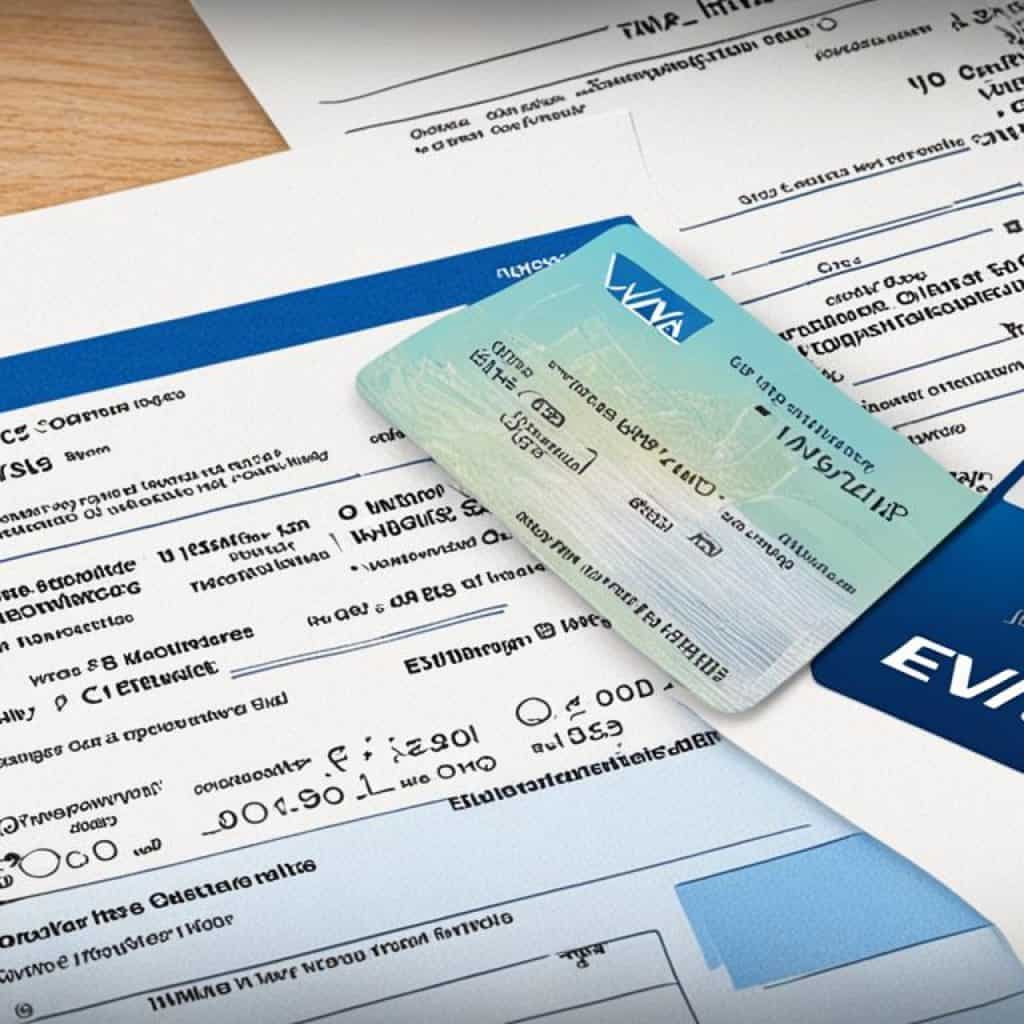
Key Features of EVUS:
- Biographical information update: EVUS allows Chinese citizens to update their biographical details, ensuring accurate and current records.
- Visa validity verification: By keeping their information updated, travelers can confirm the validity of their B1, B2, or B1/B2 visas.
- Convenience and accessibility: The EVUS website offers a user-friendly platform for Chinese citizens to easily update their information online.
Steps to Update Information on EVUS:
- Visit the official EVUS website.
- Enter the required personal information accurately.
- Review and verify the information provided.
- Submit the updated information.
It is crucial for Chinese citizens with 10-year B1, B2, or B1/B2 visas to comply with EVUS requirements and keep their information up to date. Failure to do so could lead to complications during the US travel process and potential visa issues.
Ensuring that your biographical information is accurate and current through the EVUS system is essential for hassle-free travel to the United States. By staying informed and regularly updating your information, you can confidently embark on your journey.
Form DS-160 for US Travel Docs
Form DS-160 is an essential component of the visa application process for US travel docs. This online nonimmigrant visa application collects crucial information about the applicant, including personal, educational, and professional details. The DS-160 form plays a vital role in determining visa eligibility, as it provides valuable information for consular officers during the application review process.
Completing the DS-160 form accurately and thoroughly is crucial to ensure a successful visa application. It is essential to answer all questions honestly and provide complete and up-to-date information. The form requires details such as full name, contact information, passport details, employment history, and travel plans to the United States.
Applicants can access and complete the DS-160 form online via the official U.S. Department of State website or the website of the U.S. embassy/consulate where they plan to submit their visa application. The online form is user-friendly and guides applicants through each section, ensuring that no essential information is overlooked.
Once the DS-160 form is completed and submitted, applicants will receive a confirmation page containing a unique application barcode. It is crucial to print this confirmation page as it must be presented during the visa interview. The confirmation page serves as proof that the DS-160 form has been successfully completed and submitted.
The DS-160 form is an essential document for visa application, providing consular officers with the necessary information to determine visa eligibility. Applicants must ensure that they complete the form accurately and bring the confirmation page to their visa interview. By following these steps, applicants can enhance their chances of a smooth and successful visa application process.
| Key Points | Benefits | Considerations |
|---|---|---|
| Online nonimmigrant visa application | Streamlined application process | Accuracy and completeness are crucial |
| Collects personal, educational, and professional information | Helps consular officers determine visa eligibility | Submission of the confirmation page is essential |
| User-friendly and thorough | Provides proof of completed application | Must be completed accurately and honestly |
Passport Transfer and Expiration for US Travel Docs
When it comes to US Travel Docs, passport transfer and expiration are important considerations. The process of transferring a valid US visa from an old passport to a new one can vary depending on the country of passport issuance. While US law generally allows the use of an old passport with a valid visa, it’s essential to be aware that some countries may have specific rules and restrictions in place regarding this practice.
In addition to passport transfer, it’s crucial to keep track of your passport expiration date when planning your US travel. Different countries have varying requirements for the minimum mandatory validity period of a passport after leaving the US. To avoid any potential issues or delays during your trip, it is highly recommended to ensure that your passport remains valid for a sufficient period beyond your planned departure from the United States.
If you need to transfer your visa from an old passport to a new one or if your passport is nearing its expiration date, it is advisable to consult with the embassy or consulate of your home country or the US embassy for specific guidance and requirements. They will provide you with accurate information on the necessary steps to take and any additional documentation that may be required.
Key Takeaways:
- Passport transfer of a valid US visa depends on the country of passport issuance.
- While US law allows the use of an old passport with a valid visa, some countries may have restrictions.
- Passport expiration requirements vary by country, and it is essential to ensure your passport remains valid beyond your planned departure from the US.
| Country | Minimum Mandatory Validity Period of Passport After Leaving the US |
|---|---|
| United States | 6 months |
| United Kingdom | 6 months |
| Canada | 6 months |
| Australia | 6 months |
| Germany | 3 months |
Applying for a US Visa Abroad
While it is generally advisable to apply for a US visa in your country of residence, US law allows for visa applications at any US consulate worldwide. This flexibility allows individuals who are not in their home country to still pursue their travel plans to the United States without having to return home to complete the application process.
When applying for a US visa abroad, it is important to keep in mind that certain requirements may vary depending on the location. Applicants may be asked to provide additional documentation or demonstrate their intention to return to their country of residence. This is to ensure that the applicant has a legitimate purpose for their visit and does not intend to overstay their authorized stay in the United States.
While the specific requirements may differ, the general process for applying for a US visa abroad remains the same. Applicants will need to complete the Nonimmigrant Visa Electronic Application (DS-160) form, pay the visa application fee, schedule a visa interview, and attend the interview at the US consulate or embassy.
During the interview, applicants may be asked questions about their travel plans, purpose of visit, ties to their home country, and financial ability to support themselves during their stay in the United States. It is important to provide honest and accurate information during the interview to increase the chances of a successful visa application.
Applying for a US visa abroad can be a convenient option for individuals who are traveling or temporarily residing outside of their home country. However, it is important to be aware of the specific requirements and guidelines for the respective US consulate or embassy where the application will be processed.
Benefits of Applying for a US Visa Abroad
Image:
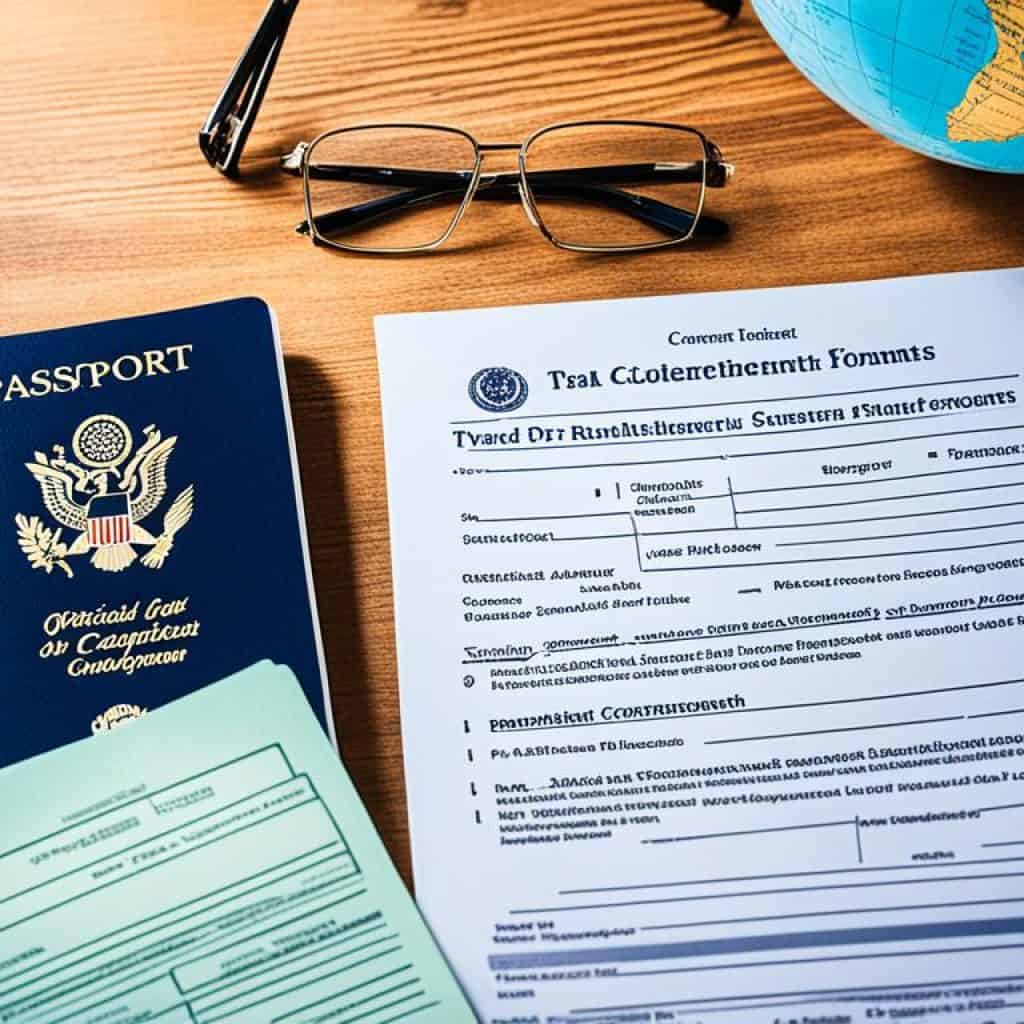
Visa Application Requirements for Convicted Individuals
Documentation Requirements
- Conviction Details: You will need to provide detailed information about your conviction, including the nature of the offense, the date of the trial, and any relevant documentation.
- Probation or Parole Records: If you were sentenced to probation or parole, you must provide records that outline the terms and conditions of your release.
- Police Reports: Depending on the circumstances of your conviction, you may be required to submit official police reports related to the offense.
- Character References: Obtaining character references from trustworthy individuals can strengthen your visa application and demonstrate your rehabilitation.
A conviction does not automatically disqualify you from obtaining a US visa. The US immigration authorities take a holistic view of each application, considering factors such as the nature of the offense, the passage of time since the conviction, and evidence of rehabilitation.
It is important to note that providing false or incomplete information regarding any convictions can have serious consequences, including visa denial or permanent ineligibility for future visa applications. It is always best to be honest and transparent throughout the application process.
Example: Visa Ineligibility Due to Criminal Record
In some cases, certain criminal offenses may make an individual permanently ineligible for a US visa. These offenses include drug trafficking, human trafficking, money laundering, and other serious crimes.
“Individuals who have been convicted of a particularly serious crime or who pose a threat to US national security, public safety, or foreign policy interests may be denied a visa or refused entry into the United States.”
Sample Table: Types of Convictions and Visa Eligibility
| Offense Type | Visa Eligibility |
|---|---|
| Minor Offenses (e.g., traffic violations) | No impact on visa eligibility |
| Misdemeanors | Eligibility may vary based on conviction details and rehabilitation |
| Felonies | Eligibility considered on a case-by-case basis, taking into account the severity of the offense and rehabilitation |
It is crucial to consult with an experienced immigration attorney who can guide you through the visa application process as a convicted individual. They can assist in gathering the necessary documentation, preparing a thorough application, and addressing any concerns the immigration authorities may have.
Visa Interview Requirements for US Travel Docs
As part of the US travel docs application process, a visa interview is a crucial step for applicants between the ages of 14 and 79. This face-to-face interview allows the United States authorities to assess the applicant’s eligibility, intentions, and ties to their home country. The interview is conducted at the US embassy or consulate in the applicant’s country of residence.
For children under the age of 14, at least one legal guardian must accompany them to the visa interview. This ensures that the guardian can provide relevant information and support the child throughout the interview process.
Applicants who are 80 years old and above are exempt from attending the visa interview. This streamlined procedure takes into account the special circumstances of elderly travelers and aims to provide a more convenient application process.
In some cases, diplomats and individuals traveling for official business missions may also be exempt from the visa interview requirement. However, it is essential to check with the local US embassy or consulate to confirm the specific interview requirements for these categories of travelers.
“The visa interview is an opportunity for applicants to demonstrate their genuine intentions to travel to the United States and return to their home country. It is important to be well-prepared, provide accurate answers, and present supporting documents if requested.”
Sample Questions Asked During a Visa Interview:
- What is the purpose of your trip to the United States?
- How long do you plan to stay in the United States?
- What ties do you have to your home country?
- Do you have any immediate family members living in the United States?
- What is your occupation and how long have you been working?
- How do you plan to finance your trip to the United States?
Remember, the visa interview is an opportunity to present yourself as a qualified and genuine traveler. Being well-prepared, confident, and providing accurate responses can significantly increase your chances of a successful visa application.
Next, let’s explore the necessary steps and supporting documents required for a smooth US travel docs application process.
| Age Group | Visa Interview Requirement |
|---|---|
| 14 – 79 years old | Personal attendance at the visa interview |
| Under 14 years old | At least one legal guardian must accompany the child |
| 80 years old and above | Exempt from the visa interview |
| Diplomats and business missions | May be exempt from the visa interview requirement |
Conclusion
In conclusion, this comprehensive guide has provided you with all the essential information and expert tips you need for your US travel documents, visa applications, and appointments. By following the correct procedures and submitting the necessary documents, you can ensure a smooth process and pave the way for a successful trip to the United States.
Whether you are applying for a B-1/B-2 visa, updating your information through the Electronic Visa Update System (EVUS), or completing the Form DS-160, this guide has equipped you with the knowledge to navigate the process confidently. Remember to gather all the required supporting documents, such as proof of income, travel itinerary, or medical records, based on your specific situation.
Expert tips throughout the guide have highlighted key considerations, such as applying for a US visa in your country of residence, or the requirements for individuals with prior convictions. By paying attention to these details and preparing thoroughly for your visa interview, you can increase your chances of a successful outcome.
FAQ
What is a B-1/B-2 visitor visa?
The B-1/B-2 visitor visa is for individuals traveling to the United States temporarily for business (B-1) or for pleasure or medical treatment (B-2). The B-1 visa is for business-related activities, while the B-2 visa is for recreational travel.
What are the qualifications for a B-1/B-2 visa?
To qualify for a B-1/B-2 visa, applicants must demonstrate that their trip to the United States is temporary, provide a specific period of stay, show financial means to cover expenses, have a residence outside the US, and demonstrate ties to their home country.
What items are required to apply for a B-1/B-2 visa?
Applicants must submit a Nonimmigrant Visa Electronic Application (DS-160) form, a valid passport, a recent photograph, a receipt of the visa application fee payment, an interview appointment letter, and any supporting documents related to the purpose of the trip.
How do I apply for a B-1/B-2 visa?
To apply for a B-1/B-2 visa, applicants need to complete the DS-160 form online, pay the visa application fee, schedule an appointment, and attend a visa interview at the US embassy or consulate. They should bring all required documents and be prepared to answer questions.
What supporting documents are required for a B-1/B-2 visa?
Supporting documents may include proof of income, travel itinerary, employer letter, criminal/court records, and documents related to previous visits to the US. Additional requirements may apply to students, working adults, businessmen, and visitors to relatives.
What supporting documents are required for medical care in the US?
Applicants seeking medical care in the US must provide a medical diagnosis from a local physician, a letter from a US physician or medical facility, and a statement of financial responsibility from the individuals or organization covering the expenses.
What is the Electronic Visa Update System (EVUS)?
The Electronic Visa Update System is a requirement for Chinese citizens with 10-year B1, B2, or B1/B2 visas to update their biographical information. Enrollment is done through the EVUS website, which is currently free but may have a fee in the future.
What is Form DS-160 for?
Form DS-160 is the online nonimmigrant visa application used to apply for US travel docs. It collects personal, educational, and professional information and is essential for determining visa eligibility. The form must be completed online, and a confirmation page must be printed and brought to the visa interview.
Can I transfer a valid US visa to a new passport?
The ability to transfer a valid US visa from an old passport to a new one depends on the country of passport issuance. While US law allows this practice, some countries may not permit it. The minimum mandatory validity period of a passport after leaving the US varies by country.
Can I apply for a US visa abroad?
While it is generally advisable to apply for a US visa in your country of residence, US law allows for visa applications at any US consulate worldwide. However, applicants may be required to provide proof of intention to return to their country of residence.
Can individuals with prior convictions apply for a US visa?
Yes, individuals with prior convictions can still apply for a US visa. However, they will need to provide documentation related to the offense, including conviction details, trial date, and offense type.
Who needs to attend a visa interview for a US visa?
Applicants between the ages of 14 and 79 must attend the visa interview in person. Children under 14 require at least one legal guardian present. Applicants over 80 are exempt from the interview. Diplomats and business missions may also be exempt.
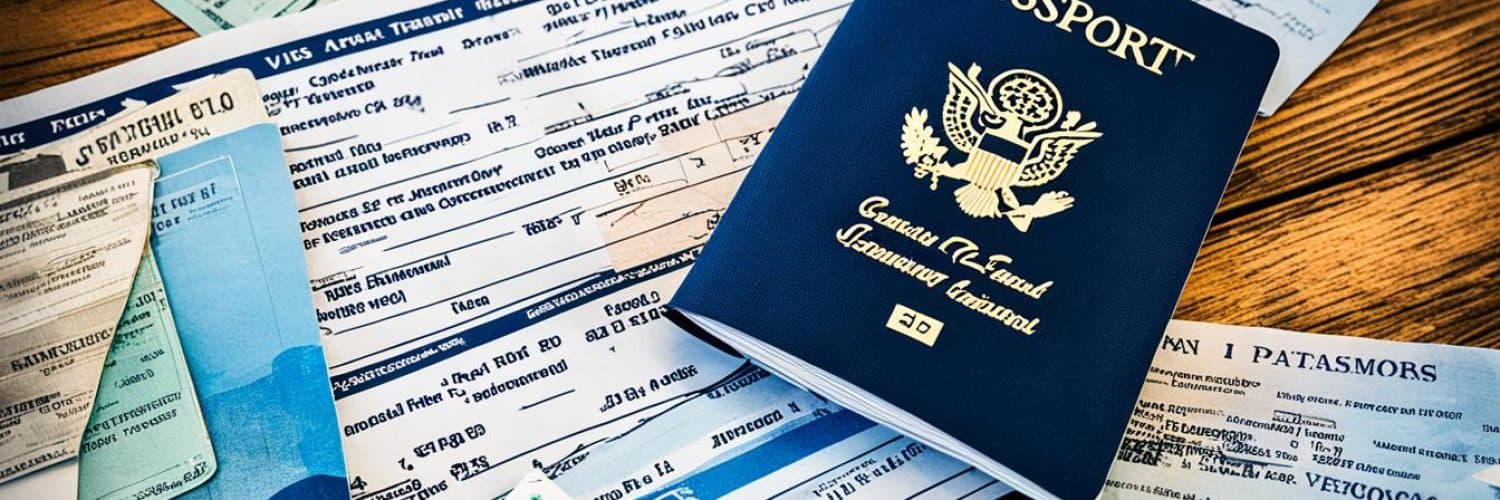
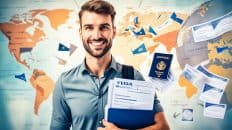
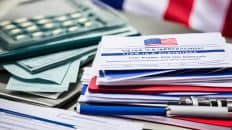





Add comment